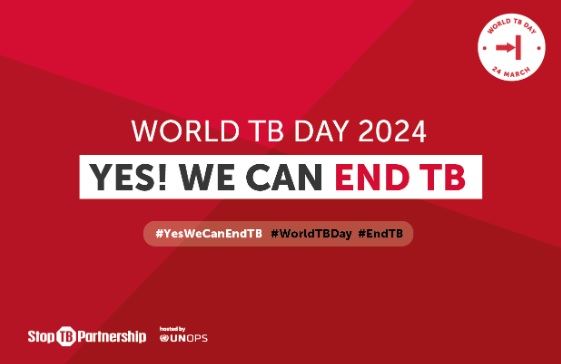
As the global community observes World Tuberculosis (TB) Day on March 24, 2024, attention is once again focused towards combating this persistent threat, a global health emergency claiming the lives of over 1.4 million individuals each year.
Under the theme “Yes! We can end TB” World Tuberculosis Day serves as a unifying call to action against one of world’s deadliest diseases. Despite progress in the fight against TB, recent years have witnessed a concerning rise in drug-resistant strains, posing new challenges to global health efforts.
Worldwide, TB is the second leading infectious killer after COVID-19 (above HIV and AIDS). In 2022, an estimated 10.6 million people fell ill with tuberculosis (TB) worldwide, including 5.8 million men, 3.5 million women and 1.3 million children. TB is present in all countries and age groups. The highest MDR rates are found in countries of Eastern Europe and central Asia, where MDR strains threaten to become as common as pan-susceptible strains. In some countries, MDR strains account for up to 20% of new TB cases and well over 50% of patients with a history of previous TB treatment. Multidrug-resistant TB (MDR-TB) remains a public health crisis and a health security threat. Only about 2 in 5 people with drug resistant TB accessed treatment in 2022. Ending the TB epidemic by 2030 is among the health targets of the United Nations Sustainable Development Goals (SDGs).
While Europe generally experiences a low incidence of TB, the South Eastern European Health Network (SEEHN) remains steadfast in its commitment to supporting member states in South Eastern Europe, where TB rates remain notably high. In some areas, the prevalence of drug-resistant strains adds further complexity to the situation.
World TB Day serves as an important reminder that sustained, collaborative, and multi-sectoral efforts are imperative to eradicate TB. SEEHN reaffirms its dedication to working hand in hand with member states and partners to comprehensively address TB, with the ultimate aim of curbing the escalation in TB incidence and creating a region free from the burden of tuberculosis.
As part of World TB Day initiatives, SEEHN urges active participation from its member states in various endeavors aimed at raising awareness, advocating for increased investment, and mobilizing support for TB prevention, treatment, and care. While prevention remains paramount, SEEHN also advocates for heightened investment in research and treatment, while expressing solidarity with those impacted by the disease.
These initiatives are directed towards fortifying health systems, enhancing access to quality services, and tackling the social determinants of health contributing to TB transmission.





